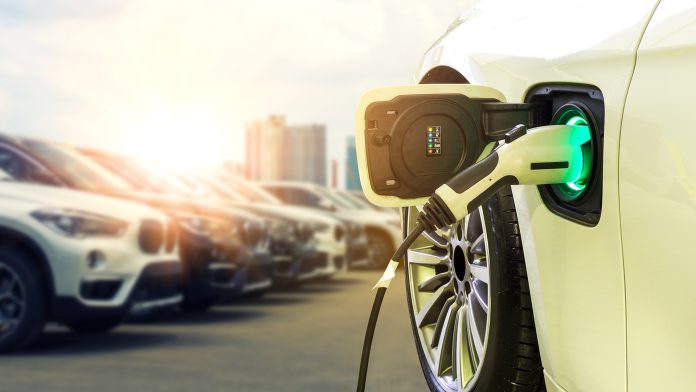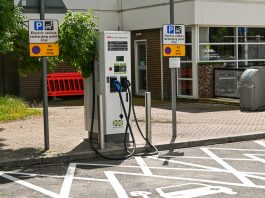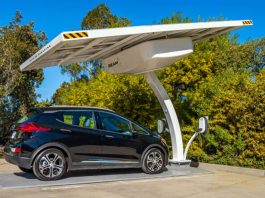Mark Winn, head of EV strategy at SMS plc, discusses the landscape of public EV chargepoints in the UK and what needs to be done to enhance infrastructure.
The rollout of enough public EV chargepoints to satisfy the expected adoption of 11 million EVs by the end of this decade poses one of the greatest infrastructural challenges of our time.
By the government’s reckoning, we’ll need a ‘minimum’ of 300,000 public EV chargers to be ‘installed ahead of demand’ and before the ban on the sale of petrol and diesel vehicles comes into place in 2035.
Amid the climate crisis, the UK has homed in on decarbonisation efforts in recent years. The installation of over 50,000 public EV chargepoints across the country so far is seen as a mark of unfaltering confidence in the future of low-carbon transport.
According to the latest Zapmap data, at the end of January 2024, there were 55,301 electric vehicle charging points across the UK and 31,445 charging locations, which represents a 46% increase in the total number of charging devices since January 2023.
While this pace is encouraging, we must ensure that public charging provisions continue to be adequate, appropriate, and accessible to all.
Funding the ramp-up of EV infrastructure
Industry research shows that a fifth of all UK electric car drivers are completely reliant on public EV chargepoints, having no charging provisions at home or work.
Likewise, 5% of all EV drivers rely solely on home charging. To ensure the transition to EVs is a smooth ride, the commitment to ensuring the UK has ‘fit for purpose’ public EV chargepoint infrastructure is totally non-negotiable.
Despite the UK’s ambitious target for new chargepoints, ensuring the installation of the right chargers in the right location is far more important. Key to this is recognising the essential need for a clear line of responsibility when it comes to the rollout.
The launch of ChargeUK, the UK’s trade association for the EV charging industry, in April last year provided fresh reassurances for the government’s commitment to ensuring adequate charging provisions for all.
However, there must be a continued effort across the public and private sectors to collaborate where possible, particularly to help deliver the financial investment needed to ensure the right level of public EV charging by 2035 and beyond.
According to the Green Finance Institute, approximately £20bn is needed to deploy 300,000 charge points across the UK – £6bn of which has already been committed by ChargeUK for infrastructure rollout and circa £2bn from the UK government.
Reflecting on progress
Despite this target, we must also take time to recognise that earlier rollouts of public EV chargepoints were not always created with customer ease of use in mind.
Undoubtedly, these early provisions saw substandard payment options and chargepoint monopolies cause frustration.
However, newer charging technologies now have the customer experience front of mind, and solving these legacy EV infrastructure issues will help combat some of the negativity seen alongside the 2035 petrol and diesel car ban.
The environment cannot risk yet another ban extension, so solving the teething issues of this infrastructure is crucial.
Despite the need for quantity, organisations investing in this infrastructure also need to focus on quality – particularly when it comes to installing the right type of chargers in the right places at the right time – to avoid frustration and reluctance towards EVs altogether.
If the industry is to safely avoid backlash, greater due diligence must be applied to future EV chargepoint installations.
Securing the future of EV charging via open access
To guarantee the success of future chargepoint rollouts, the UK’s public EV infrastructure must also move away from private or closed network operators with an open access approach.
Instead, future developments must implement Open Charge Point Protocol (OCPP) – an open-source communication standard for EV hardware that supports all types of OCPP-compliant car charging software.
We should consider the commitment to public charging as a single, unified public and private sector goal.
The mass transition to low-carbon transport is a significant infrastructural requirement, and with the right approach, the UK has a prime opportunity to position itself as the leader in the EV industry.









